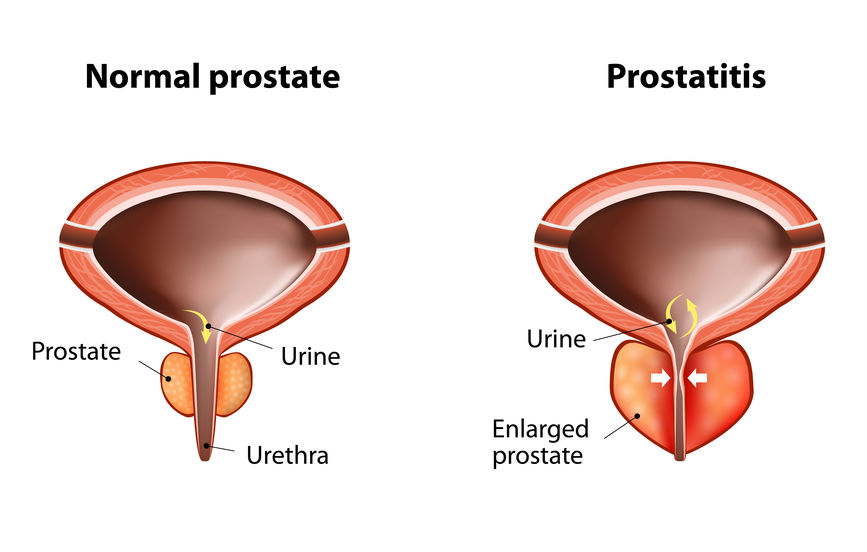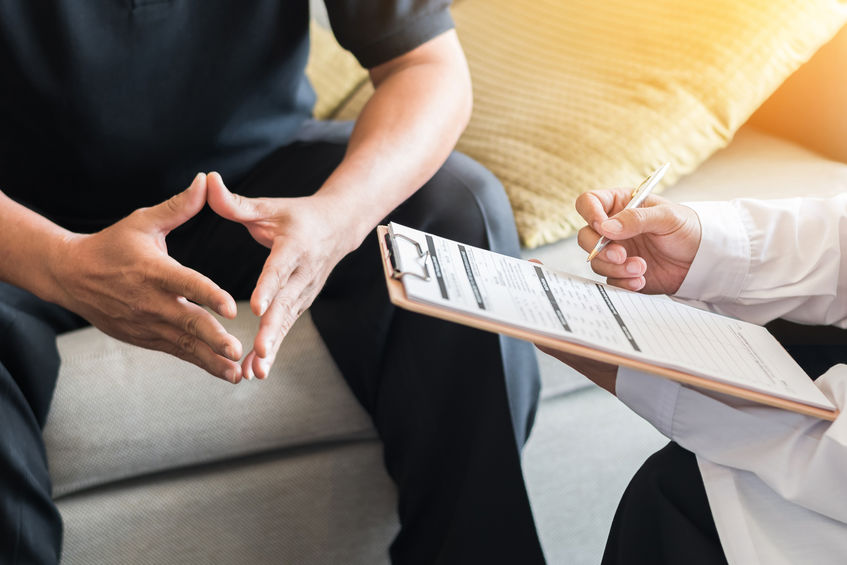The prostate, a small gland that plays a very important role in men’s health is often overlooked. Some men know they have a prostate but are not quite sure what the importance of this gland is or when to call a doctor if it becomes enlarged. Like most disorders and illnesses, prevention is always better than cure, which is no different when it comes to the prostate. The more information you know about prostate support, the easier it is to detect or prevent any problems that may arise in the future.
>>Curious about Prostarex™? See what users are saying in their reviews.
What Is The Function Of The Prostate?
The prostate, which directly translates from the Ancient Greek word prostátēs to“protector”, “guardian”, “one who stands before’ is a walnut-sized exocrine gland that sits in front of the rectum between the bladder and the penis. The prostate, bladder, and penis are connected to the urethra, which allows urine to flow from the body.
The main function of the prostate gland is to lubricate and nourish the sperm by secreting an alkaline fluid. This fluid helps to neutralize the acidic environment of the vaginal tract to prolong the lifespan of the sperm. The prostatic urethra (the part of the prostate that connects to the urethra) helps to channel sperm from the testicles via the vas deferens to the seminal vesicles during ejaculation and prevents the sperm from being forced back into the bladder, which is also known as retrograde ejaculation.
For reasons that are still unclear, the prostate gland can grow larger, which is a normal occurrence for most aging men. Some researchers suggest that this is due to an increase in the reproduction of cells known as hyperplasia, however, the exact cause is still unknown. This usually starts to happen by the age of 40. By this age, the prostate can grow from the size of a walnut to approximately the size of an apricot. By the age of 60, the prostate can grow to the size of a lime. Because of the location of the gland, an enlarged prostate can cause problems when trying to urinate. Most men will only experience these symptoms after the age of 50, but in some cases, these problems can start earlier. Fortunately, this specific condition, which doctors call Benign Prostatic Hyperplasia, or BPH is not cancerous.
Who Is At Risk For Developing BPH?
Benign Prostatic Hyperplasia is a fairly common occurrence, especially in older men that cannot be prevented. While the exact underlying cause is unknown, certain risk factors can make you more prone to developing BPH. These include:
- Family history
- Activity levels
- Obesity
- Type two diabetes
- Medications such as anticholinergics, calcium antagonists, or pseudoephedrine
According to statistics, approximately 50% of men between the ages of 51 and 60 are up to 90% of men between the ages of 80 and more are affected by BPH.
What Are The Symptoms Of An Enlarged Prostate?
There are a few symptoms that can help you identify whether you may have BPH or not, however, it is important to know that these symptoms may vary with each individual depending on your current health and lifestyle.

If you are experiencing trouble urinating or find yourself spending more time in the bathroom than you used to, it may be a sign of an enlarged prostate. Other symptoms to look out for include:
- Unable to delay or hold in urination
- Frequent urination
- Difficulty starting a urine stream
- An interrupted or weak urine stream
- Urinary incontinence
- Urinary retention or the inability to empty the bladder completely
- Urine is giving off an unusual smell and color
- Experiencing pain during urination
- Experiencing pain after ejaculation
These symptoms are usually brought on by the enlarged prostate blocking or putting pressure on the urethra. Some of the pain you are experiencing may be caused by the bladder trying to pass urine through the blockage. If you are experiencing these symptoms it is important to seek advice from a doctor. While it may be rare, BPH can damage the kidneys or bladder.
How Is BPH Treated?
Treatment is always determined based on the severity of the symptoms. Should the prostate be mildly enlarged and symptoms are not affecting a man’s quality of life, a urologist may recommend lifestyle changes and regular check-ups. If symptoms become bothersome or are causing more serious urinary issues, a urologist will likely recommend further treatment by prescribing medication and in some cases minimally invasive procedures when medications have not been effective.
Prostate Support At Home
Fortunately, for those who have mild symptoms, there are a few changes you can make at home in order to keep BPH symptoms under control. Making these changes earlier on in life may also help to reduce your risk of developing other prostate disorders such as prostatitis.
Supplements
Thanks to endless research, scientists, and of course nature, there are supplements like Prostarex that can help improve the quality of your life when dealing with disorders such as Benign Prostatic Hyperplasia. These prostate health supplements are designed to help reduce enlarged prostates, relieve pain and inflammation, and strengthen the bladder with the use of clinically proven ingredients such as Phytosterols, Saw Palmetto, and amino acids to name a few.
Diet Changes
Changing your eating habits can be effective in managing symptoms and supporting a healthy prostate in the long run. According to some research, following a low carb hearty healthy diet may reduce the risk of developing prostate cancer. Experts also suggest eating a healthy serving of fruits and vegetables that are bright in color every day such as dark leafy greens, tomatoes, and bell peppers. Green tea, soy, and omega-3 fatty acids have also shown promise in supporting the prostate thanks to their powerful antioxidant properties.
Lifestyle Changes
Whether you have an enlarged prostate or not, exercising regularly can have a significant impact on preventing serious health conditions such as strokes, heart disease, and possibly some types of cancer. Stress and anxiety can also worsen symptoms in BPH and many other medical conditions. Exercising regularly helps to decrease cortisol levels (the stress hormone) and boost endorphins (the feel-good hormones) and serotonin levels.
Get Regular Check-Ups
As we mentioned before, prevention is always better than cure. Getting regular screenings can help detect any problems early on. Normally a doctor will perform a digital rectal exam to feel for any lumps or swelling. This only takes a few moments and your doctor will be able to tell you if the prostate is normal sized and in a healthy shape. If there are any lumps or problems detected during the exam, your doctor may send your blood for further tests and administer treatment to eliminate any potentially cancerous cells or inflammation from spreading or worsening.
Our Final Takeaway On Prostate Support
An enlarged prostate or Benign Prostatic Hyperplasia is a fairly common disorder most men develop in their later years. While it can cause some urinary issues, if managed correctly, these symptoms won’t be as bothersome and can in some cases be subdued. These symptoms can be managed at home by changing both eating and lifestyle habits. Supplements like Prostarex can also help to shrink the prostate and reduce any pain and discomfort. If you are experiencing any discomfort and the changes you have made are not effective in reducing symptoms, consult with your doctor as soon as possible.


